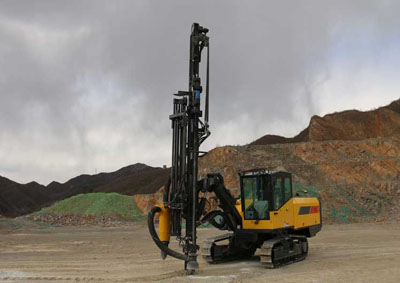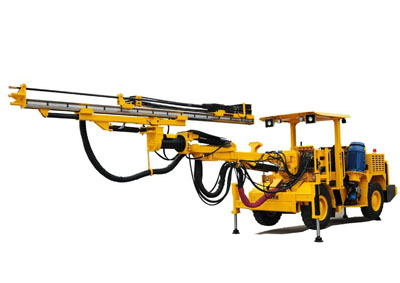What Are Some Fun Facts About Drilling Rigs?
Size Matters:
Drilling rigs come in various sizes, from small portable units to massive structures. The largest drilling rigs can reach heights of over 200 feet and have a total weight exceeding 10,000 tons.
Ancient Origins:
Han dynasty oil wells made by percussion drilling was effective but only reached 10 meters deep and 100 meters by the 10th century. By the 16th century, the Chinese were exploring and drilling oil wells more than 2,000 feet (610 m) deep. Chinese well drilling technology was introduced to Europe in 1828. A modernized variant of the ancient Chinese drilling technique was used by American businessman Edwin Drake to drill Pennsylvania's first oil well in 1859 using small steam engines to power the drilling process rather than by human muscle.
Offshore Marvels:
Offshore drilling rigs are incredible engineering feats. Some of the largest offshore rigs are designed to drill in water depths of up to 12,000 feet or more. These rigs are often equipped with dynamic positioning systems to keep them stable in rough sea conditions.
T45 Full Hydraulic Top Hammer Surface Drilling Rig
Deeper and Deeper:
The deepest offshore well ever drilled is the Z-44 Chayvo Well in Russia. Completed in 2011, it reached a total depth of 40,502 feet (12,344 meters). This is roughly seven and a half miles deep!
The Power of Rotary:
Most modern drilling rigs use a rotary drilling method. This involves rotating a drill bit while applying downward pressure to penetrate the Earth's surface. The rotary method allows for efficient drilling through various formations.
Rig Components:
A typical drilling rig consists of several key components. These include the drill string (composed of drill pipes and a drill bit), a derrick or mast to support the drilling equipment, a mud system for circulating drilling fluid, and blowout preventers to control well pressure.
Rig Personnel:
A drilling rig requires a skilled team to operate it effectively. Common personnel on a rig include the driller, who oversees the drilling process, roughnecks, who handle the manual labor, and mud engineers, who monitor and adjust the drilling fluid.
Rig Moves:
Moving a drilling rig from one location to another is a complex and time-consuming process. It involves disassembling the rig into smaller components, loading them onto trucks or barges, and then reassembling the rig at the new site. Rig moves can take several days or even weeks to complete.
Roughneck Traditions:
Roughnecks, the manual laborers on drilling rigs, have a long-standing tradition of painting their hard hats in distinctive colors and patterns. This helps identify different crews and adds a personal touch to their gear.
Ice Drilling:
In polar regions, special drilling rigs are used to extract ice cores from glaciers and ice sheets. These cores provide valuable information about past climates and are instrumental in studying climate change.
Jack-up Rigs:
Jack-up rigs are commonly used in shallow water drilling operations. These rigs have extendable legs that can be jacked up above the water surface, allowing them to work in water depths up to a few hundred feet.
Sky-High Derrick:
The tallest drilling rig ever built is the GustoMSC CX-15, designed for offshore operations. Its derrick stands at a towering 557 feet (170 meters), roughly the height of a 50-story building.
Drilling in Extremes:
Drilling rigs are used in various extreme environments. For example, some rigs are designed to operate in the Arctic, enduring freezing temperatures and harsh weather conditions. Others are used in deserts or even in the depths of the ocean.
Rapid Drilling:
The record for the fastest drilling of an oil well is held by a rig in the Gulf of Mexico. In 2008, it drilled a well to a total depth of 35,050 feet (10,688 meters) in just 14 days.
Related:




